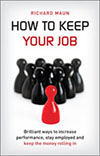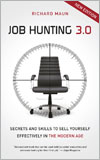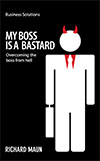better business blog
Tips and stories to add value to you and your organisation

Checking Reality
Do you like going to the theatre? It’s a treat to watch actors sharing their skills and telling their story and for a while we can leave behind the worries of our world and immerse ourselves in their play.
The sets and props and costumes draw us into piece and we buy in to the drama and enjoy being transported to ancient Rome, or to a drawing room in nineteeth century England.
All good fun and then at the end we step back into reality and go home, or go out for a pizza.
Business can be like the theatre and when we step through the door marked ‘work’ we enter a new world of roles and measurements and busy to-do lists.
We can forget that we have the skills to lead a family and manage our household expenses, because the new environment confuses us with jargon and overwhelms us with complexity.
The same person who wouldn’t dream of buying the most expensive sofa in the shop can lose their sense of proportion and buy the most expensive laptop, on the grounds that they absolutely must have extra RAM and a smart silvered case.
Reality becomes lost as we battle to make sense of unfamiliar dynamics, with customers demanding results now and suppliers letting us down at vital moments.
As a business coach I spend my life happily inviting people to think about the reality of their situation and to examine options and consequences. We test out the truths in their business and move towards a position of grounded acceptance.
Three of my favourite reality checks for people are as follows:
1. What does history tell us? If we regularly sell 10 units of our products then to sell 20 we need to change something. Simply ‘working harder’ isn’t going to change the reality of our market place. By accepting that history has value we can learn from it and do things differently to create a new reality for our business.
2. Are we, or are they, competent to do the work? Calling someone a manager does not automatically imbue them with the skills and techniques they need to lead teams, set tasks and work at a higher level. People need time to grow into a new role, permission to make mistakes and the care and support of their line manager. Competency is not a given, it needs to be nurtured and developed.
3. Can we really afford it? Having money in the bank doesn’t necessarily mean we have the money to spend on a project. We can forget to consider future expanses, such as tax, or maintenance costs. Without a budget to focus our thinking it is too tempting to assume all cash is free to spend, whereas in most cases it is already earmarked for something.
Checking reality involves drinking tea and eating biscuits. In doing so we can sit quietly and allow ourselves time to think, instead of rushing in and making snap decisions.
Checking reality means looking hard at the numbers. If we don’t have the numbers in front of us we need to get them.
Checking reality means asking the three questions I have posed above. If history, competence and the numbers inform our thinking positively then we know our decision is likely to be a good one.
The theatre is a great place to step away from reality for a while, but business isnt. We can all take a moment to stop and think and can check out the reality of our situation, before we make a bad decision.
So, this week have fun asking yourself difficult questions. What’s the most difficult question you can ask yourself today? You know, the one that you’ve been avoiding for a while?
Have some tea and biscuits handy to support your thinking time!
Next week: Finding Your Voice
e-publishing
Click icon for details


recent posts
browse archive
books
Click cover to view details on Amazon

How to Keep Your Job
Brilliant ways to increase performance, stay employed and keep the money rolling in
Published 2011 Marshall Cavendish
208pp

Job Hunting 3.0
Secrets and skills to sell yourself effectively in the Modern Age
Published 2010 Marshall Cavendish
260pp

 RSS
RSS


